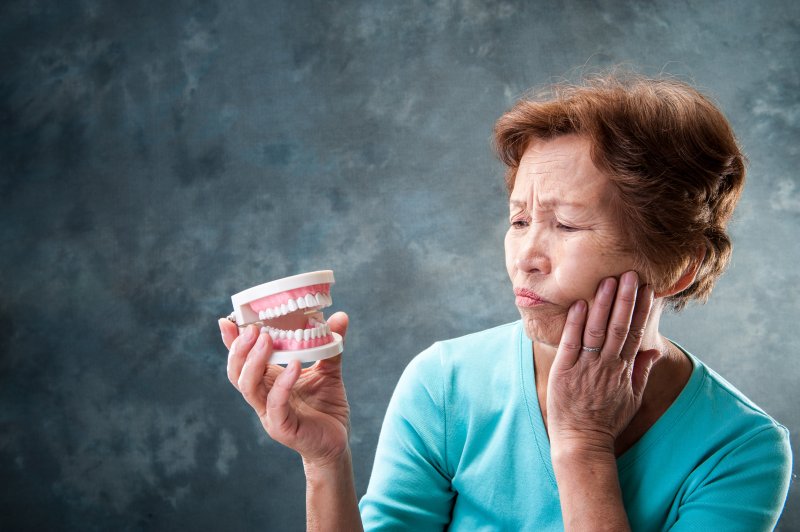
Millions of Americans suffer from extensive tooth loss. If you’re a part of that statistic, you know firsthand how much it can affect your quality of life. Well, dentures are an excellent solution to rebuild your smile and restore your confidence. It’s worth noting that they’re not a permanent method of tooth replacement, which means you must take proper care of them to ensure they last as long as possible. Otherwise, they can become ill-fitting and lead to several dental problems. Read on to learn which complications can arise from ill-fitting dentures and how your dentist can help.
What Complications Can Ill-Fitting Dentures Cause?
Although it may not seem obvious, your jawbone’s shape changes over time. When you have missing teeth, your gums and jawbone may shrink from lack of tooth root stimulation. That can cause dentures that once fit you perfectly to become loose or uncomfortable. If you have ill-fitting dentures, it can lead to several complications, including:
Irritated, Swollen, Inflamed Gums
Ill-fitting dentures can rub against the gum tissue in unnatural ways, leading to irritation and inflammation. The extra friction and pressure against your gums can also cause swelling, making it easier for your connective tissues to become injured or bleed while wearing dentures.
Blisters
Blisters may develop when your dentures rub against certain areas in your mouth. It’s the body’s attempt to protect affected tissues, but it’s certainly unpleasant. If you develop an infection, the blisters can grow and multiply, leading to other complications.
Difficulty Speaking
Speaking with dentures is hard enough, but it’s even more difficult when they’re constantly moving around in your mouth. Not only can ill-fitting dentures make people feel self-conscious, but they can cause people to develop a lisp or speech impediment.
Headaches
Even though people may not realize it, headaches are an all-too-common side effect of ill-fitting dentures. When your mouth hurts, your jaw hurts – and when your jaw hurts, it often causes your head to hurt.
Trouble Eating
If your dentures don’t fit properly, you may have difficulty eating certain foods. Unfortunately, that can make it hard to stick to a clean and well-balanced diet. Additionally, food can more easily become trapped between your gums and dentures, increasing your risk of gum disease.
How Your Dentist Can Help
Once you notice your dentures don’t fit right anymore, you should contact your dentist right away for help. They might recommend denture relining, which involves adding material to the inner plate that hugs the gums. It’ll make sure that your restorations fit properly and securely once again. If you’d like more stability for day-to-day use, ask your dentist about securing your dentures with dental implants. It’s one of the most permanent tooth-replacement solutions that will eliminate problems with slipping and irritation!
If you have ill-fitting dentures, don’t hesitate to ask your dentist for a solution. They’ll get your smile back on track in no time!
About the Author
Dr. Tammy Ton has a talent for making patients of all ages feel relaxed and comfortable in the dental chair. She’s currently a proud member of the American Dental Association, Dallas County Dental Society, and Texas Dental Association. If you’re struggling with ill-fitting dentures, Dr. Ton will gladly offer a solution to prevent further complications from arising. Visit her website or call (972) 698-5988 to make an appointment today!
